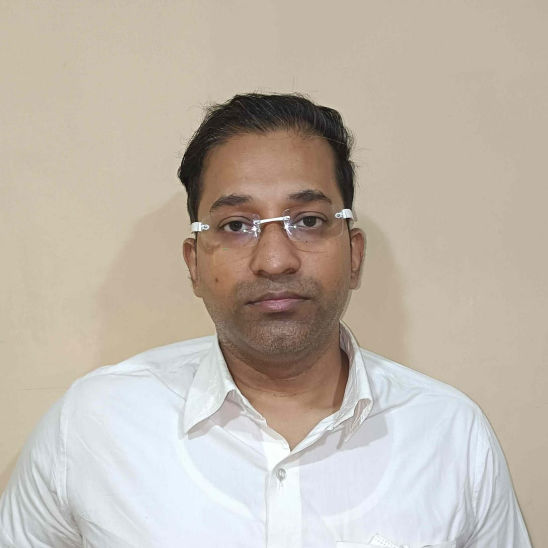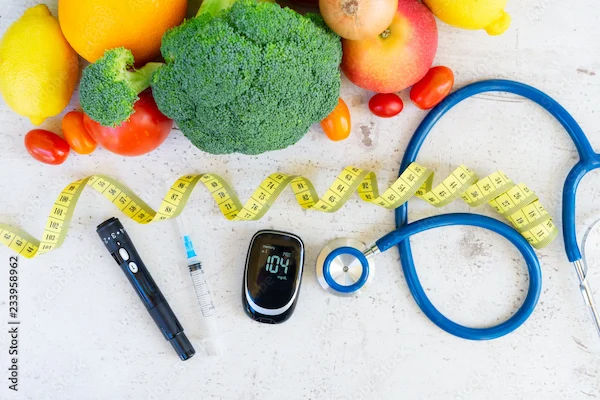Glycemic Index and Low Glycemic Foods
The glycemic index ranks foods by how they affect blood sugar levels. Learn the benefits of low glycemic foods, their role in diabetes management, and tips for healthier eating.

Written by Dr. Mohammed Kamran
Reviewed by Dr. Rohinipriyanka Pondugula MBBS
Last updated on 18th Aug, 2025

Maintaining healthy blood sugar levels is essential for overall well-being, especially for people with diabetes or those at risk of developing it. One way to manage blood sugar is by understanding the Glycemic Index (GI) and incorporating low glycemic foods into your diet.
This article will explain what the Glycemic Index is, how it affects your health, and how you can make smarter food choices to stay healthy.
What is the Glycemic Index (GI)?
The Glycemic Index (GI) is a scale that ranks carbohydrate-containing foods based on how quickly they raise blood sugar levels after eating. Foods are scored from 0 to 100:
Low GI (55 or less): Slow digestion, gradual rise in blood sugar.
Medium GI (56-69): Moderate impact on blood sugar.
High GI (70 or above): Rapid digestion, quick spike in blood sugar.
Choosing low GI foods helps maintain steady energy levels, prevents sudden sugar crashes, and supports long-term health.
Why Does the Glycemic Index Matter?
Eating high-GI foods frequently can lead to:
Blood sugar spikes and crashes (leading to fatigue and cravings).
Increased risk of type 2 diabetes (due to insulin resistance).
Weight gain (since rapid sugar spikes can increase hunger).
On the other hand, low-GI foods help:
Stabilize blood sugar levels.
Improve energy and mood.
Support weight management.
Reduce the risk of diabetes and heart disease.
Low Glycemic Foods to Include in Your Diet
Here are some healthy low-GI foods to consider:
1. Whole Grains & Legumes
Oats, quinoa, barley
Brown rice, whole wheat pasta
Lentils, chickpeas, black beans
2. Non-Starchy Vegetables
Broccoli, spinach, cauliflower
Bell peppers, zucchini, tomatoes
Consult Top Specialists
3. Fruits (in moderation)
Apples, pears, berries
Oranges, peaches, plums
4. Nuts & Seeds
Almonds, walnuts, chia seeds
Flaxseeds, pumpkin seeds
5. Dairy & Alternatives
Greek yoghurt, milk (unsweetened)
Soy milk, almond milk (unsweetened)
High Glycemic Foods to Limit
Some foods cause rapid blood sugar spikes and should be eaten in moderation:
White bread, white rice, instant oatmeal
Potatoes, cornflakes, sugary cereals
Soda, candy, pastries, fruit juices
Tips for Managing Blood Sugar with Low-GI Foods
1. Pair Carbs with Protein & Fiber: Combining carbs with protein (like nuts or yogurt) slows digestion and reduces sugar spikes.
2. Choose Whole Over Processed Foods: Whole grains, fruits with skin, and unprocessed foods have a lower GI.
3. Avoid Sugary Drinks: Opt for water, herbal tea, or unsweetened beverages.
4. Monitor Portion Sizes: Even low-GI foods can raise blood sugar if eaten in large amounts.
5. Cook Smart: Lightly cooking vegetables (instead of overcooking) helps retain fiber and lowers GI.
When to Seek Medical Advice?
If you experience:
Frequent thirst, hunger, or fatigue
Unexplained weight loss or gain
Blurred vision or slow-healing wounds
It’s important to check your blood sugar levels. Apollo 24|7 offers easy diabetes screening tests and consultations with specialists. You can book a test or talk to a doctor from the comfort of your home.
Conclusion
Understanding the Glycemic Index helps you make better food choices for stable blood sugar and long-term health. By including more low-GI foods and reducing high-GI options, you can improve energy, manage weight, and lower diabetes risk.
Small changes in your diet can make a big difference—start today!
Need help managing your diet or blood sugar levels? Consult a doctor on Apollo 24|7.
Consult Top Specialists
Consult Top Specialists

Dr. Rajib Ghose
General Practitioner
25 Years • MBBS
East Midnapore
VIVEKANANDA SEBA SADAN, East Midnapore

Dr. Sandhya Chandel
General Physician/ Internal Medicine Specialist
16 Years • MBBS, MD (Int. Med.), IDCCM
Bilaspur
Apollo Hospitals Seepat Road, Bilaspur
(125+ Patients)

Dr. Mary Susan K S
General Physician/ Internal Medicine Specialist
13 Years • MBBS, MD INTERNAL MEDICINE
Bengaluru
Apollo Clinic, Sarjapur Road, Bengaluru

Dr. Harshendra Jaiswal
General Physician/ Internal Medicine Specialist
12 Years • MBBS , MD (General medicine)
Kolkata
108 DHANA DHANVANTARI Clinic, Kolkata
(25+ Patients)

Dr. Vishal Kumar H
General Physician/ Internal Medicine Specialist
8 Years • MBBS, master class in critical care medicine, Advanced Post Graduate Diploma in Non Invasive Cardiology, certificate course in Cardiovascular Disease & Stroke, Certificate course in Common Mental Disorder
Bengaluru
Apollo Clinic, Basavanagudi, Bengaluru



